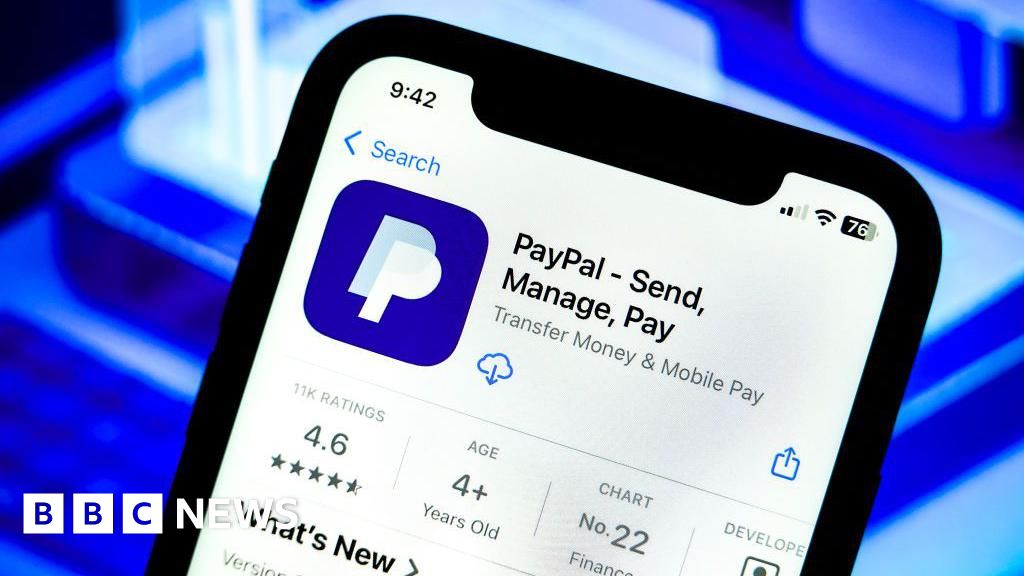European banks have seen widespread unauthorized direct debits from PayPal accounts, the German Savings Banks Association (DSGV) says.
The German newspaper Sueddeutsche Zeitung (SZ) reports that payments worth in the region of 10 billion euros (£8.6bn) have had to be blocked, after PayPal's fraud-checking system failed.
Payments were paused on Monday when lenders reported millions of suspicious debits from the payment firm.
The DSGV confirmed to the BBC that there had been incidents involving unauthorized direct debits initiated by PayPal against various credit institutions.
The BBC has approached PayPal for a comment.
PayPal told Reuters that certain transactions from our banking partners and potentially their customers had been affected by a temporary service interruption.
According to a spokesperson, We quickly identified the cause and are working closely with our banking partners to ensure that all accounts have been updated. The DSGV advised that PayPal had acknowledged the disruptions and assured they had resolved the problem, stating that Payment transactions to and from PayPal have been running normally again.
However, the issues had significant effects on payment transactions across Europe, particularly in Germany. The supervisory authorities have also been informed about the incidents at PayPal.
PayPal aims to filter out scams before they can reach banks via a security system, intended to combat fraudulent direct debits set up by criminals, often tricking individuals into providing personal details by pretending to be financial institutions via phone.
Reportedly, PayPal's filter system malfunctioned on Monday, resulting in unchecked direct debits being sent to banks alongside legitimate transactions.
Following the report, shares in the payment firm fell by 1.9% on Wednesday.




















